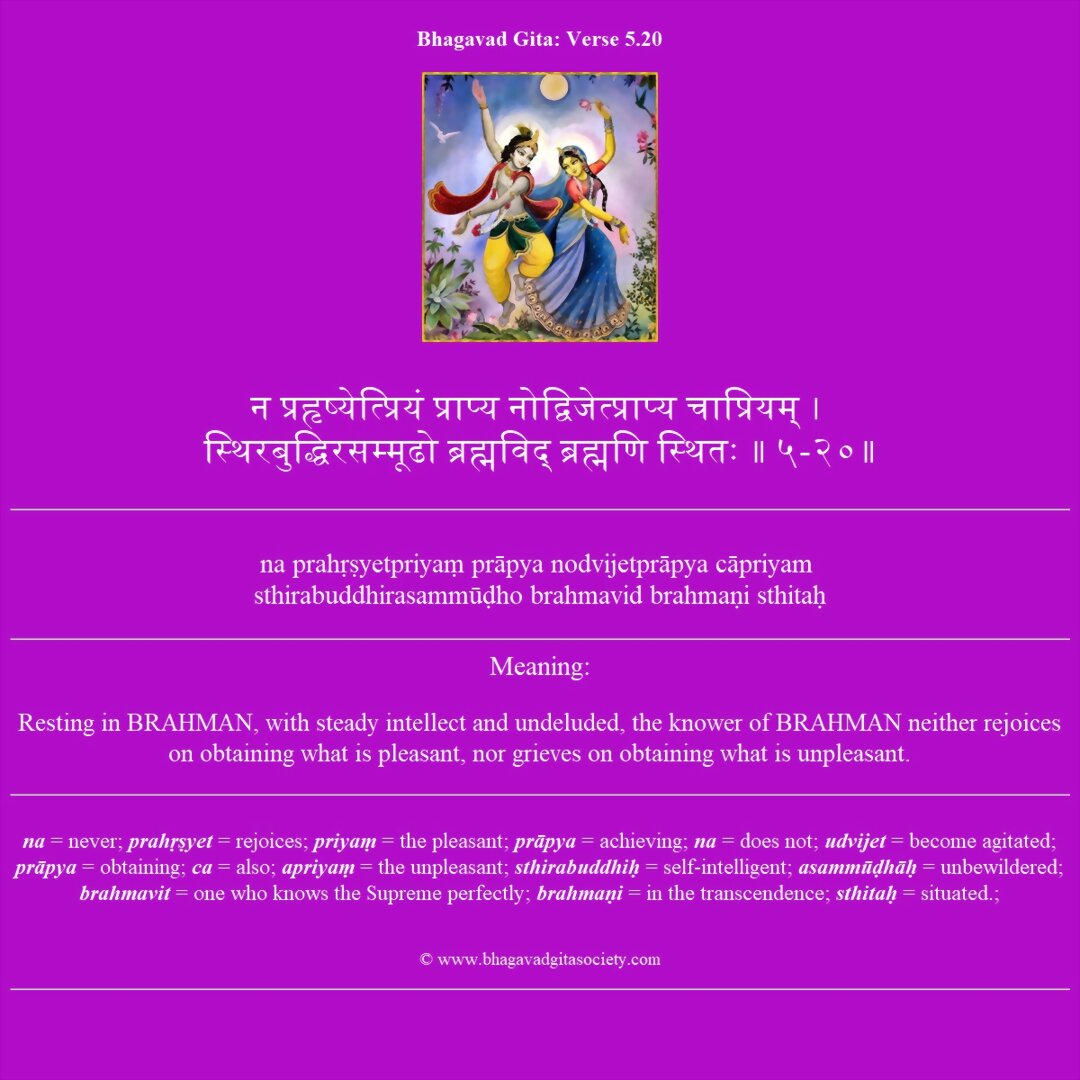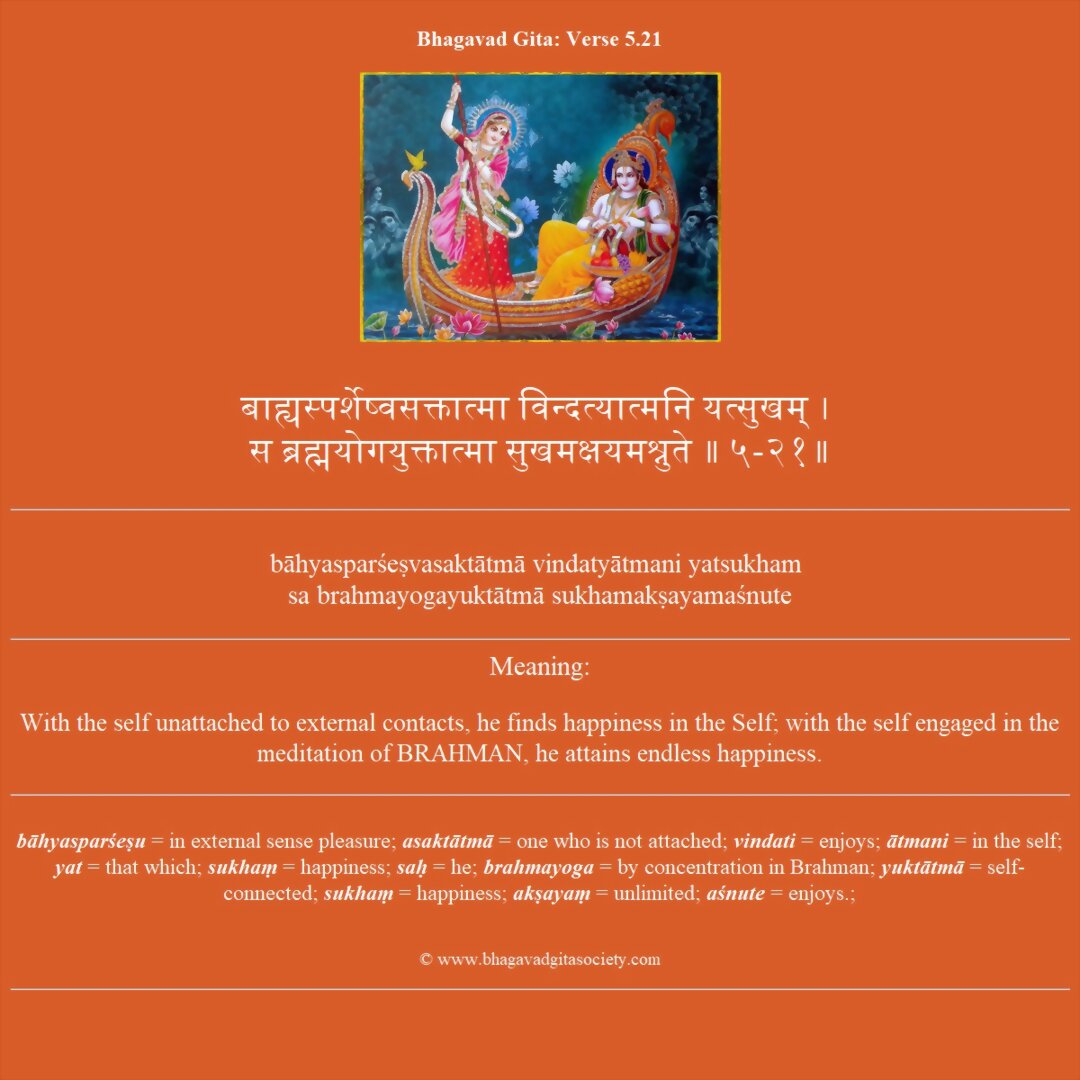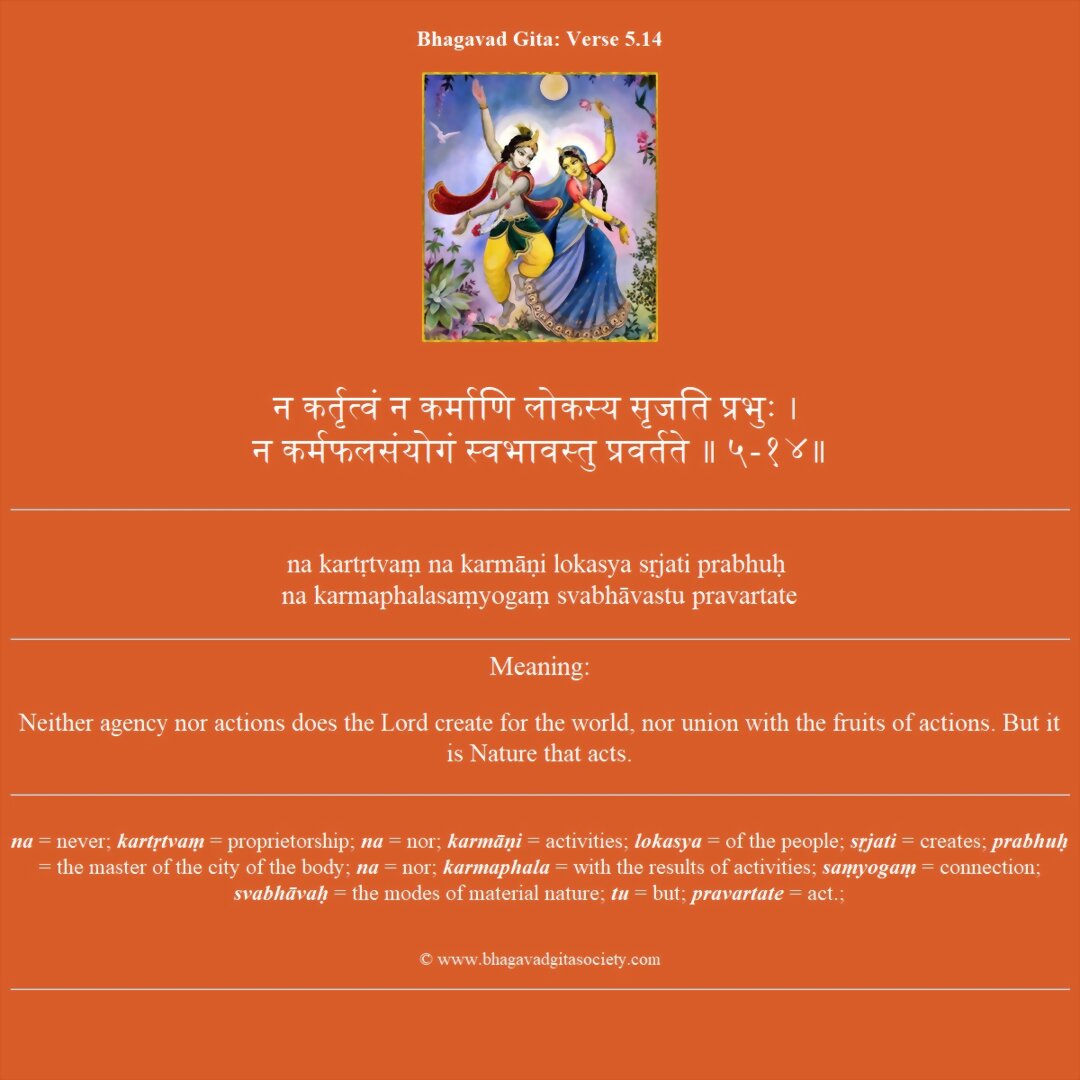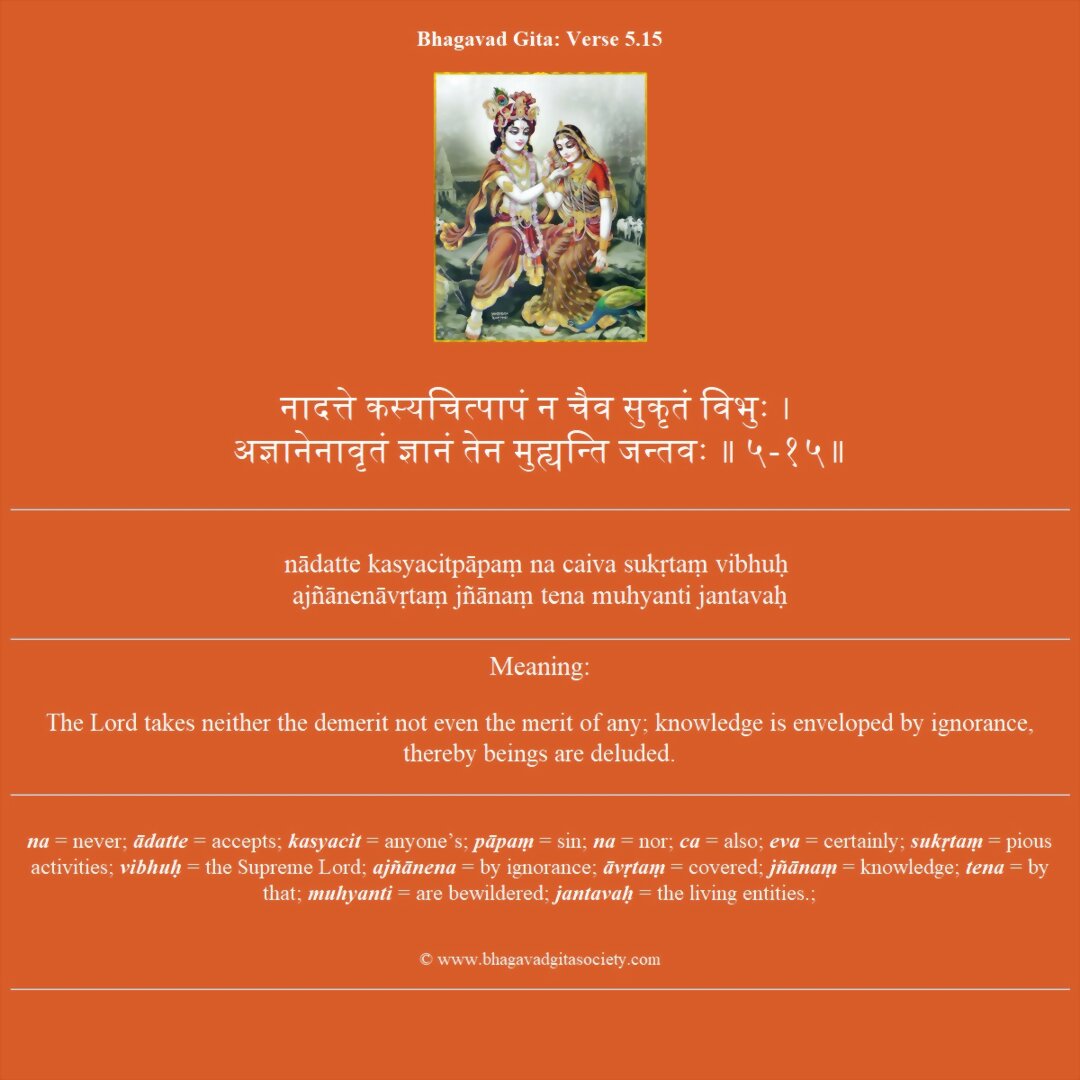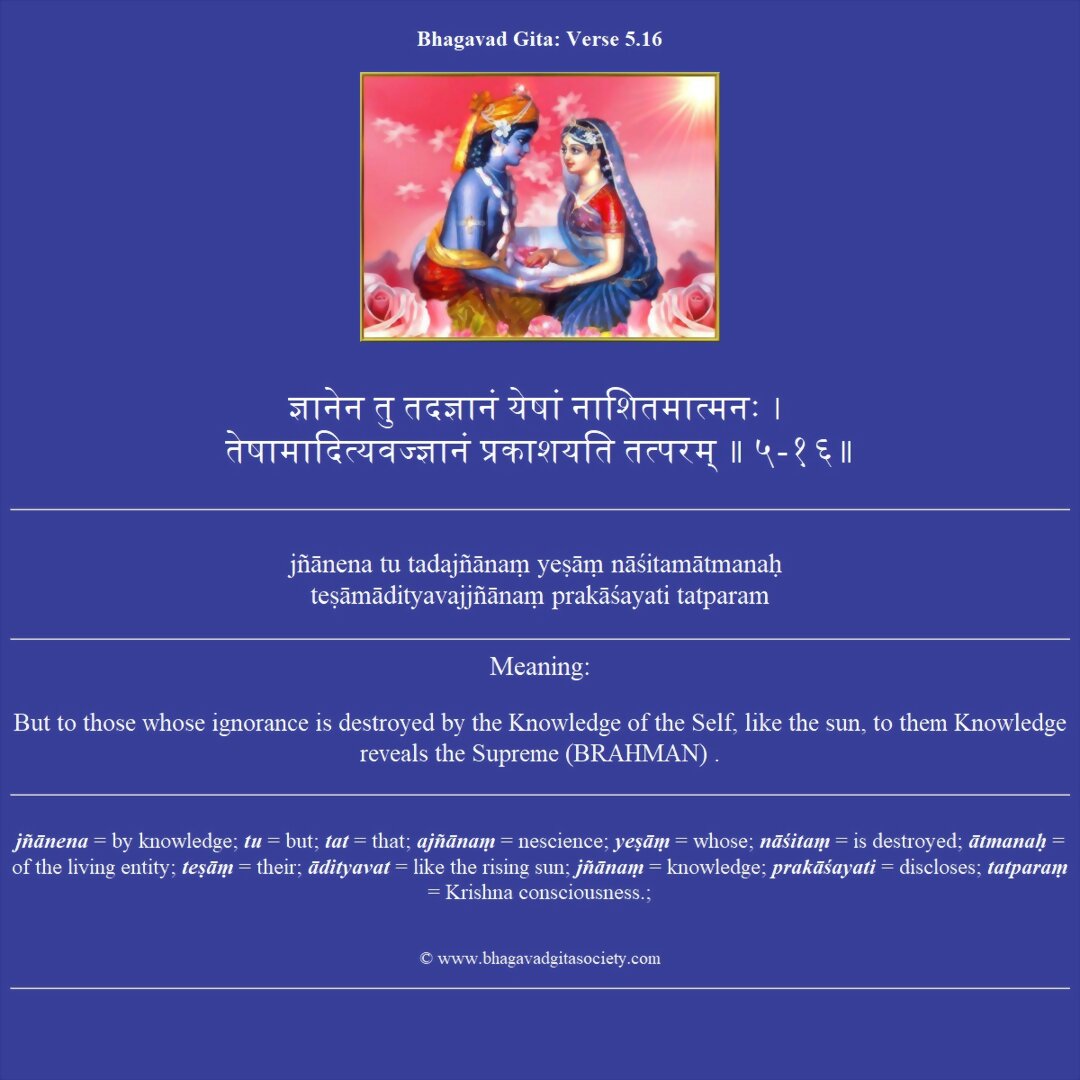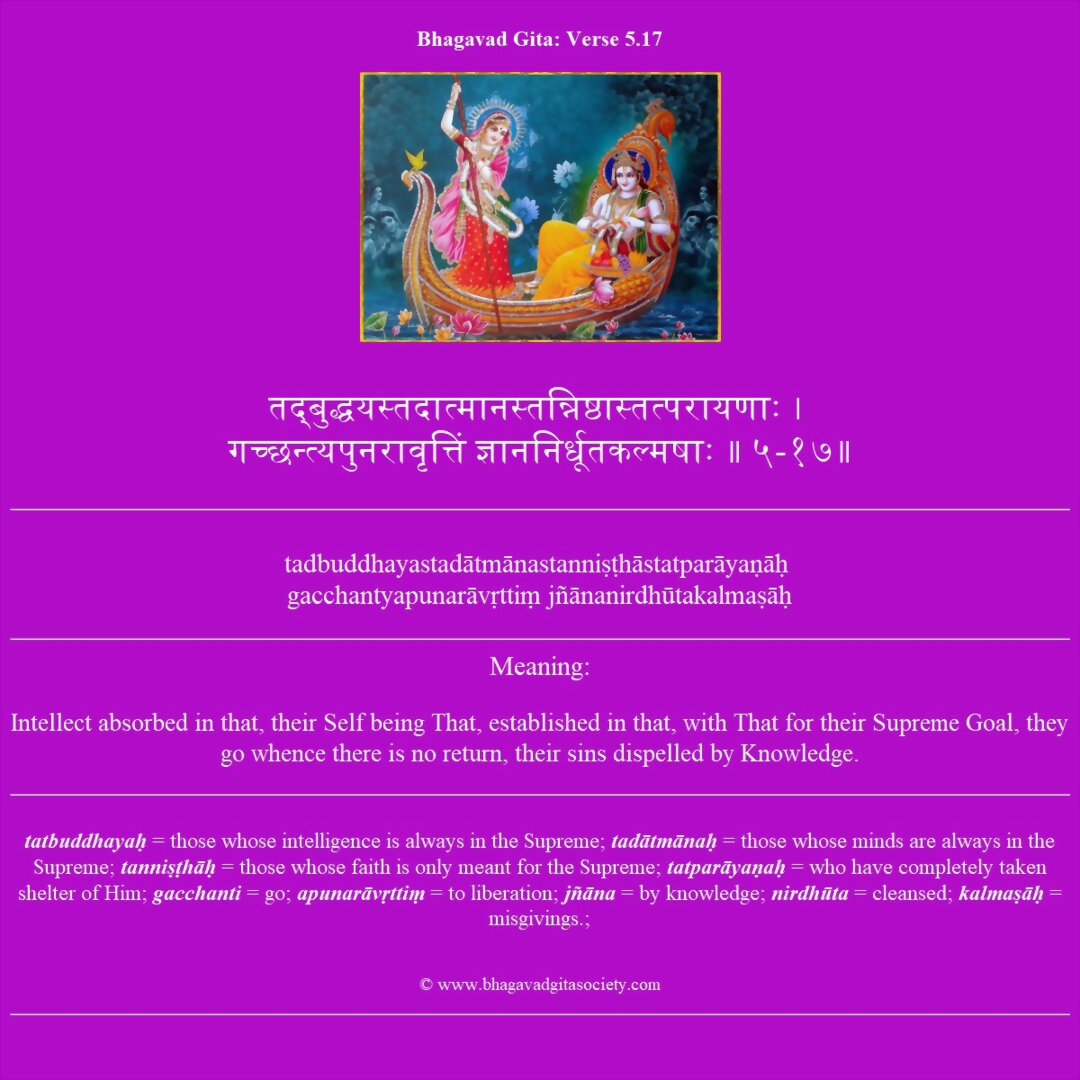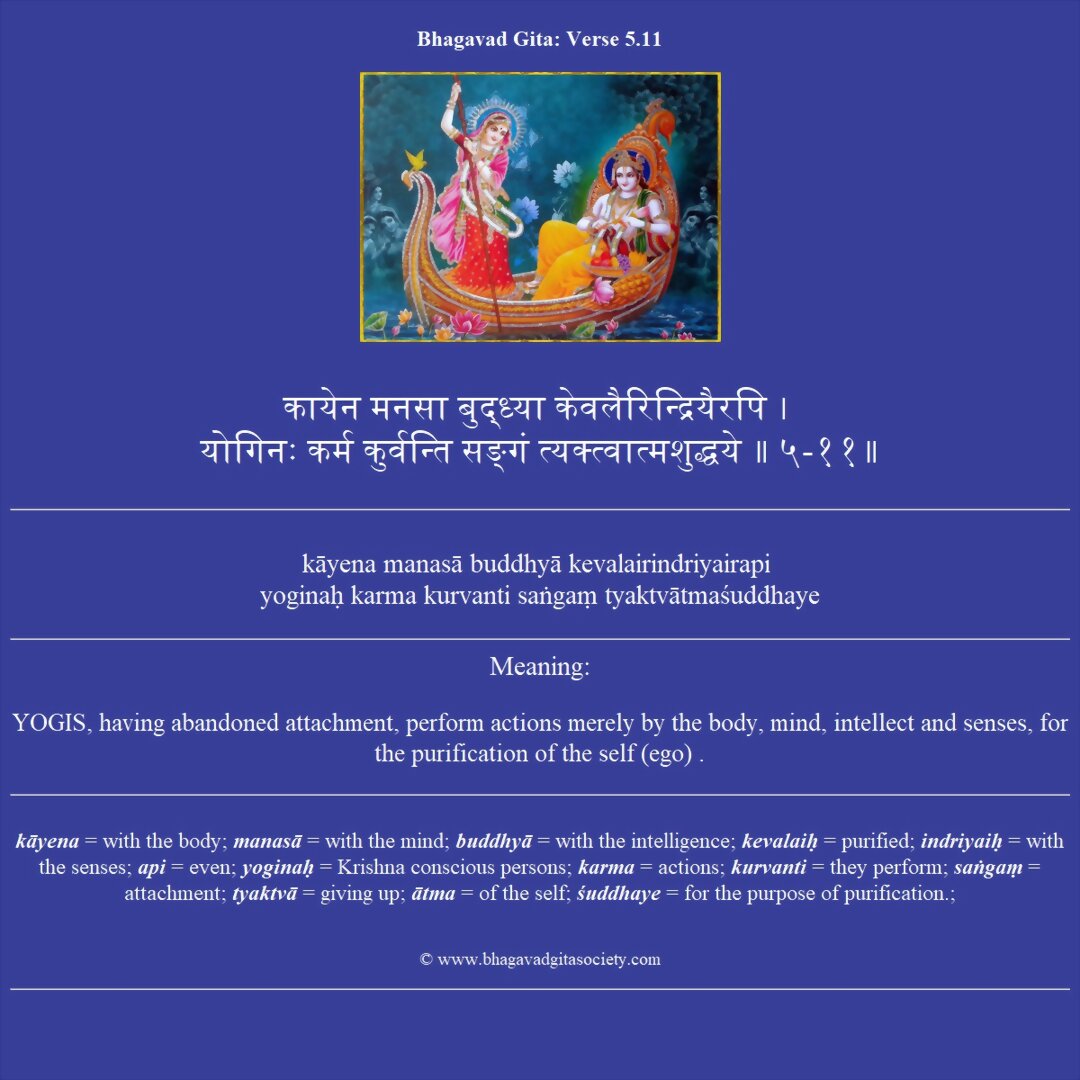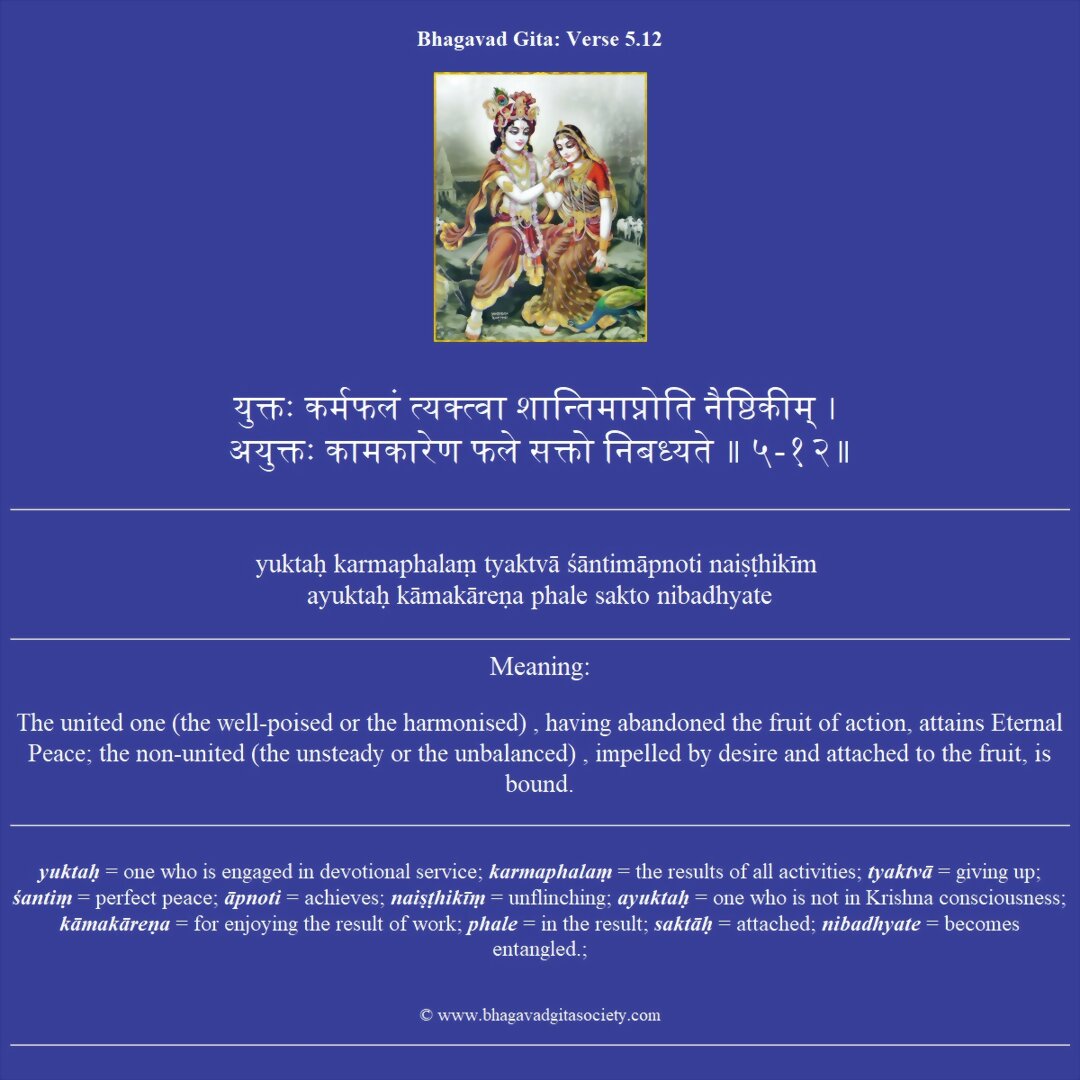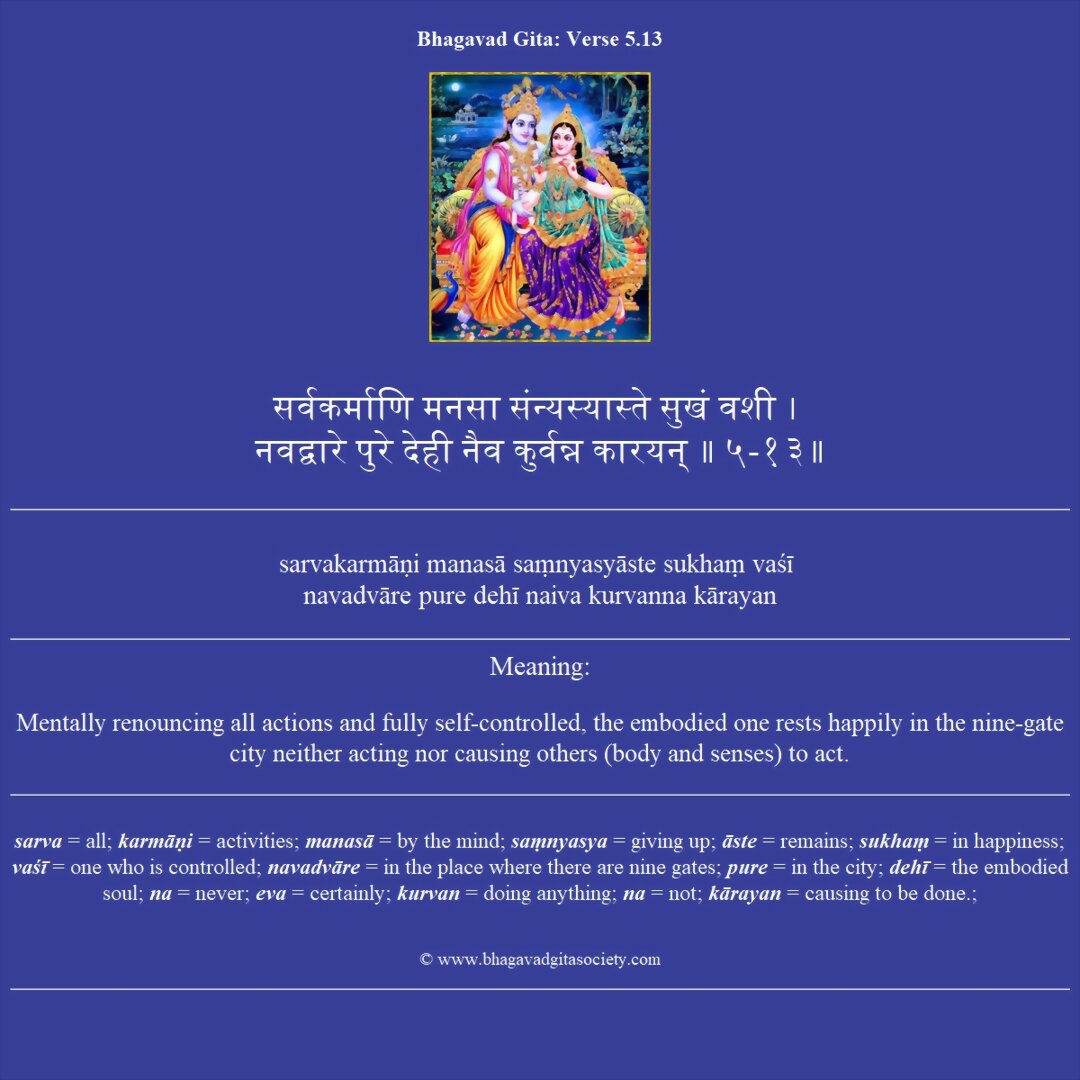Bhagavad Gita: Verse 5.20
न प्रहृष्येत्प्रियं प्राप्य नोद्विजेत्प्राप्य चाप्रियम् ।
स्थिरबुद्धिरसम्मूढो ब्रह्मविद् ब्रह्मणि स्थितः ॥ ५-२०॥
na prahṛṣyetpriyaṃ prāpya nodvijetprāpya cāpriyam
sthirabuddhirasammūḍho brahmavid brahmaṇi sthitaḥ
Meaning:
Resting in BRAHMAN, with steady intellect and undeluded, the knower of BRAHMAN neither rejoices on obtaining what is pleasant, nor grieves on obtaining what is unpleasant.
na = never; prahṛṣyet = rejoices; priyaṃ = the pleasant; prāpya = achieving; na = does not; udvijet = become agitated; prāpya = obtaining; ca = also; apriyaṃ = the unpleasant; sthirabuddhiḥ = self-intelligent; asammūḍhāḥ = unbewildered; brahmavit = one who knows the Supreme perfectly; brahmaṇi = in the transcendence; sthitaḥ = situated.;
